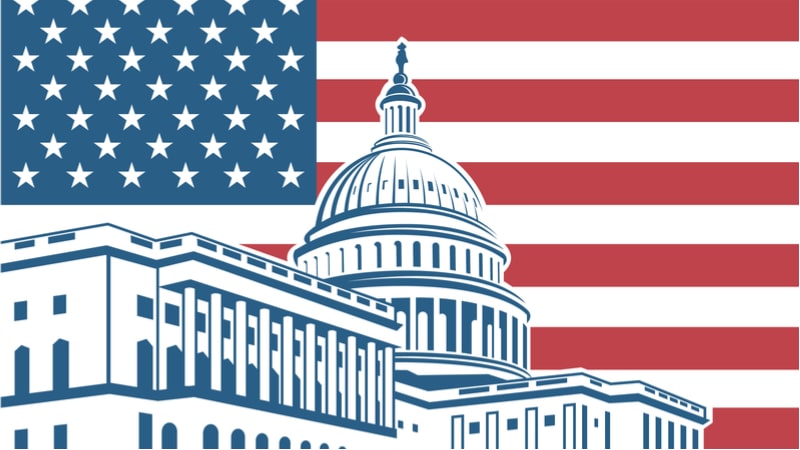
Rep. Bob Latta, R-Ohio, ranking member of the House Energy and Commerce Committee’s subcommittee on Communications and Technology, delivered a wide-ranging survey of tech issues in the panel’s gunsights for this year and beyond during a keynote speech at the State of the Net 2019 conference today, and generally came down on the lighter side of the regulatory spectrum.
Covering the gamut from Federal regulations to 5G deployments, Rep. Latta claimed significant successes on tech-sector issues for the previous session of Congress when Republicans were in charge of the House, and challenged the current session to build on that progress now that Democrats are in charge.
Government Regulations
Rep. Latta called for “soft-touch regulations” on the private sector to encourage greater innovation. He discussed his conversations with startups and established business across numerous industries, noting that every business he spoke with said they weren’t opposed to regulations per se, rather, they wanted regulations that encouraged innovation instead of hampering it.
Specifically, Latta praised the RAY BAUM’S Act, which became law during the last Congress and tackled a host of telecom regulatory subjects including: reauthorization of the Federal Communications Commission; changes to the reports that FCC makes to Congress; instructing the National Telecommunications and Information Administration to identify more spectrum for commercial wireless services by 2022; and requiring FCC to give its CIO greater roles in IT management and spending at the agency.
He called the law the “most comprehensive telecommunications work in the last two decades,” and urged the current Congress to build on its success.
Net Neutrality
While Rep. Latta praised the Energy and Commerce Committee’s ability to work in a bipartisan fashion, he noted that the terms “bipartisan” and “net neutrality” rarely go hand in hand.
The congressman said that while “there’s room for consensus” on net neutrality issues, he also argued that last year’s rollback by the FCC of Obama administration net neutrality rules–which had classified internet service as information service and thus more open to Federal regulation–has put the internet on a solid footing that does not need to be further disturbed. “The internet has continued to function just as before,” he said.
Rep. Latta warned of the ill effects of any attempt to upset the current status quo, saying that past attempts to increase regulatory authority over internet services have “created uncertainty that can limit investment.” And he argued that regulatory uncertainty hinders the ability of broadband service providers to address the digital divide of service availability.
Finally, Rep. Latta emphasized his “open door” policy and asked the tech professionals at the conference to come to him with their thoughts, ideas, questions, and concerns.
Data Privacy
Rep. Latta also touched on the reported sale of user location data by telecom service providers including Sprint, T-Mobile, and AT&T, but seemed to split the difference on the core privacy issue at stake.
On Jan. 11, the House Energy and Commerce committee’s Democratic leadership called for an emergency briefing from the Federal Communications Commission to explain why the Commission “has yet to end wireless carriers’ unauthorized disclosure of consumers’ real-time location data and what actions the FCC has taken to address this issue to date,” but FCC Chairman Ajit Pai refused to brief the committee, citing the partial government shutdown.
During his remarks today, Latta argued that there were legitimate instances where real-time geolocation data was necessary, such as for roadside assistance. And in those instances, he argued, consumers agreed to share their location data. However, he did acknowledge that not all parties who had access to such data provided notice or received consumer consent. Rep. Latta said he is working with Democratic colleagues to gather more information about the issue, but stressed he wants to ensure consumers still have access to important and “at times lifesaving” services, while still protecting their privacy.
